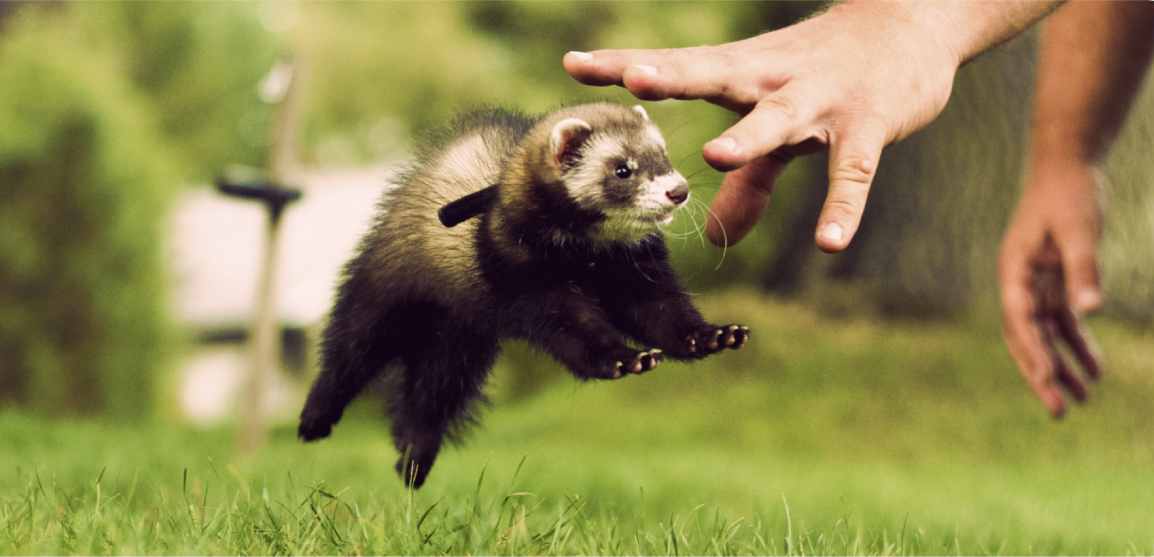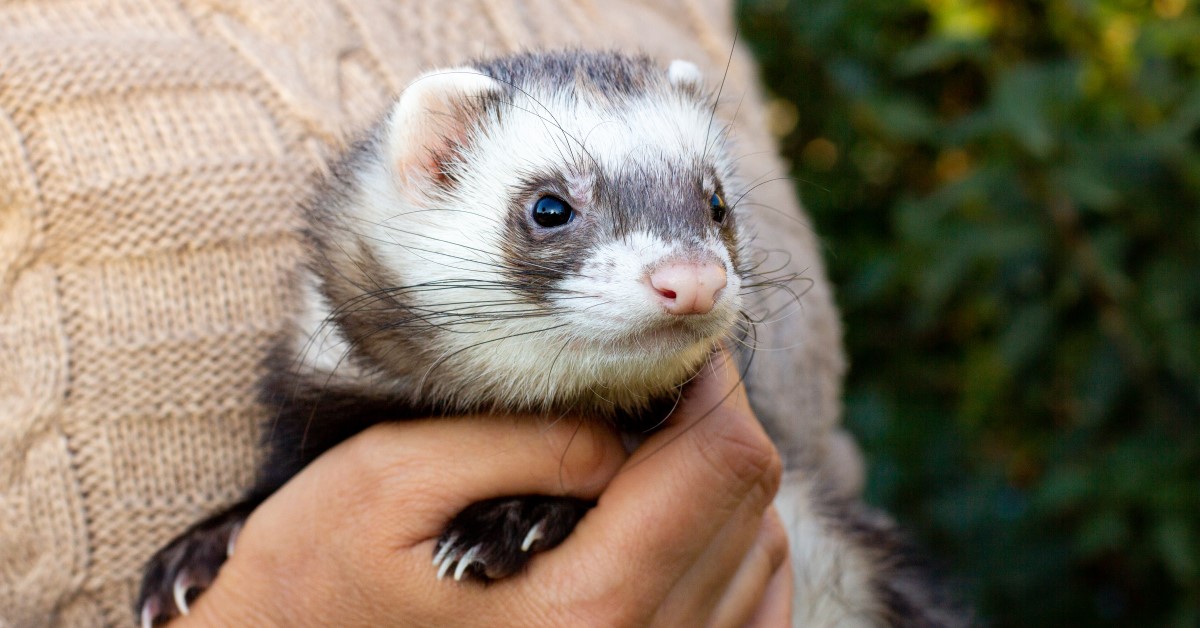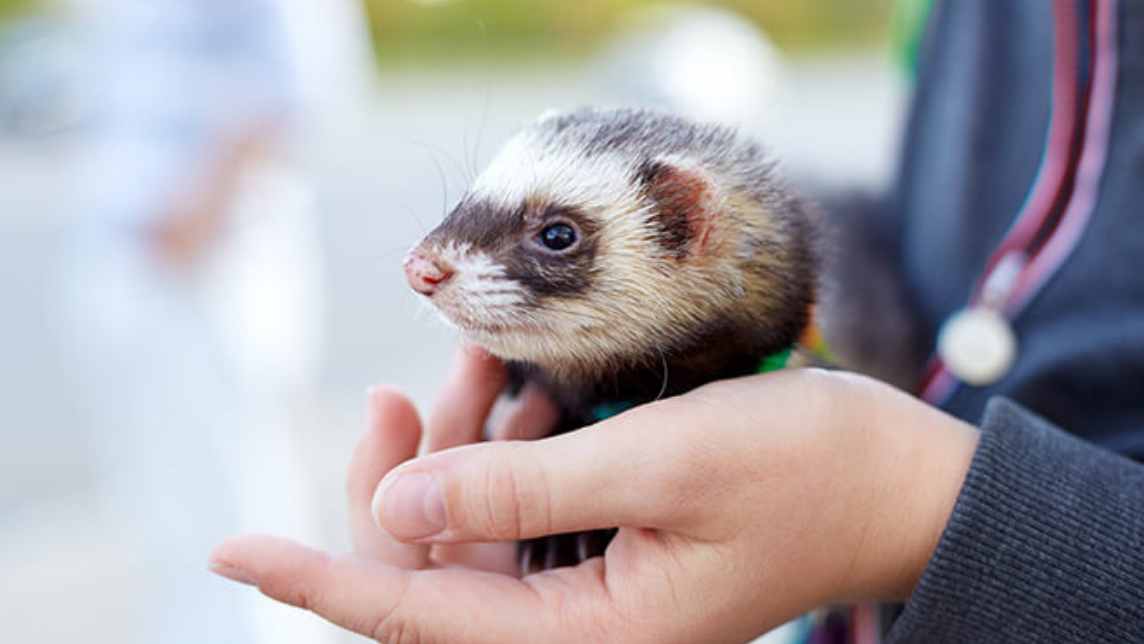
How to Train and Socialize a Pet Ferret: A Simple Guide
These adorable little creatures are playful and curious little pets. But they require decent training and socialisation to keep them happy and healthy. You will learn how to train your ferret, socialise with them, and how to have a healthy bond.
Why Training and Socialization Matter

Ferret Training and Fetting out of Furor help create a bond, keep them mentally engaged, and help them adjust to your home.” Ferrets are social animals and require companionship. With little to no training, they can have behaviour issues, stress, or aggression.
A well-socialized ferret is more fun to have around. They interact well with other pets, adapt to new places, and show fewer destructive behaviours. Good training can also prevent accidents and keep them safe.
Understanding Ferret Behavior
Before you train your ferret, knowing their natural behaviour is important. Ferrets are energetic and curious, often getting into places they shouldn’t. They instinctively dig and burrow, which should be considered when training.
Natural Instincts
Ferrets are carnivores with instincts to hunt and explore. They enjoy play that mimics hunting, like chasing or pouncing. Embrace this playfulness during training.
Communication
Ferrets use sounds and body language to communicate. They hiss when scared, dook when excited, and scream when frightened. Understanding these signals helps you meet your ferret’s needs.
Step-by-Step Guide to Ferret Training
Training a ferret takes patience, consistency, and positivity. Here’s a simple guide to help you train effectively.
Housetraining Your Ferret
Housetraining is one of the first steps. Ferrets can learn to use a litter box, like cats. This requires patience.
Choosing the Right Litter Box
Pick a corner-shaped litter box. It should fit well in their cage and be stable enough for them to use comfortably.
Introducing the Litter Box
Place the litter box in a corner of their cage. Use litter made for ferrets or cats, avoiding clumping or dusty types.
Encouraging Use
To help your ferret use the box, place some of their waste inside. This allows them to associate it with the right spot. Reward them with treats and praise when they use it correctly.
Teaching Basic Commands
Teaching commands help manage behaviour and strengthen your bond. Valuable commands include “come,” “stay,” and “no.”
The “Come” Command
To teach “come,” use a treat or a favourite toy. Call their name, say “come,” and reward them when they approach. Repeat this consistently.
The “Stay” Command
To teach “stay,” hold your hand up in a stop gesture. Reward them if they stay. Gradually increase the distance and time.
The “No” Command
Use “no” to discourage bad behaviour. If they bite or chew furniture, say “no” firmly and redirect them to a toy.
Ferret Socialization Techniques
Socialising your ferret means exposing them to new places, people, and pets to help them adjust.
Introducing Your Ferret to New Environments
Gradually let your ferret explore different parts of your home. Supervise them to keep the environment safe.
Meeting Other Pets
If you have other pets, introduce them slowly. Supervise interactions to prevent aggression. With time, they may become comfortable together.
Socialising with People
Encourage friends and family to interact with your ferret. Let your ferret approach new people at their own pace and reward calm behaviour.
Additional Expert Tips & Common Mistakes to Avoid

Training and socialising a ferret can be challenging, but it can also be rewarding. Here are some tips and mistakes to avoid.
Consistency is Key
Use the same commands and rewards every time. Inconsistency can confuse your ferret and slow their progress.
Avoid Punishment
Punishing your ferret can lead to fear and aggression. Focus on positive reinforcement. Reward good behaviour with treats, praise, or play.
Be Patient
Training takes time. Progress may be slow, but persistence helps. Celebrate small victories and stay patient.
Advanced Insights and Expert Recommendations
If you want to deepen your knowledge of ferret behaviour, consider these tips.
Enrichment Activities
Ferrets need mental stimulation to avoid boredom. Provide toys, tunnels, and puzzle feeders. Rotate toys often to keep them interested.
Professional Training Classes
Think about enrolling your ferret in a professional class. These can offer new techniques and insights from experienced trainers.
Health and Nutrition
A healthy ferret is more straightforward to train. Ensure they have a balanced diet, regular check-ups, and vaccinations for good health.
Building a Strong Bond with Your Ferret

Training and socialising your ferret is an ongoing commitment. So, everything you need to know to establish a good relationship with your pet is to know them, give them a constant education, and ensure that they have been socialised so you can create that bond. This bond creates a happier, healthier pet and a more harmonious home.
So, you want to go on this adventure with your ferret? Start now to have a well-trained and socialised member of your family.


